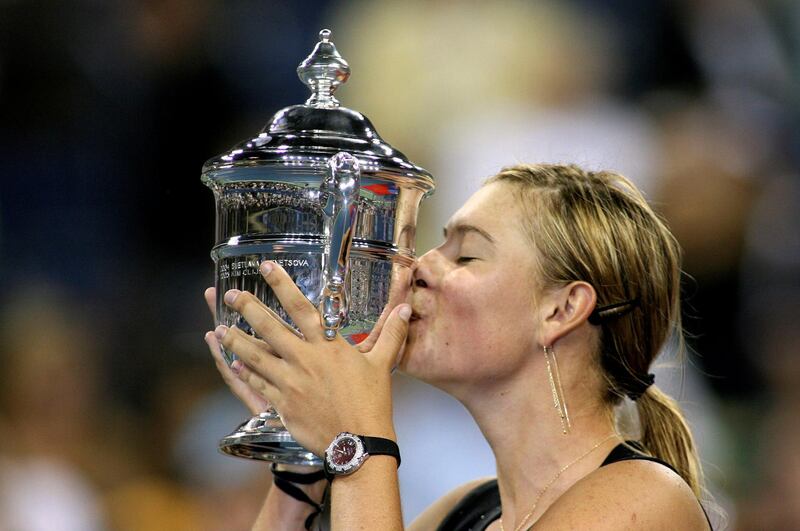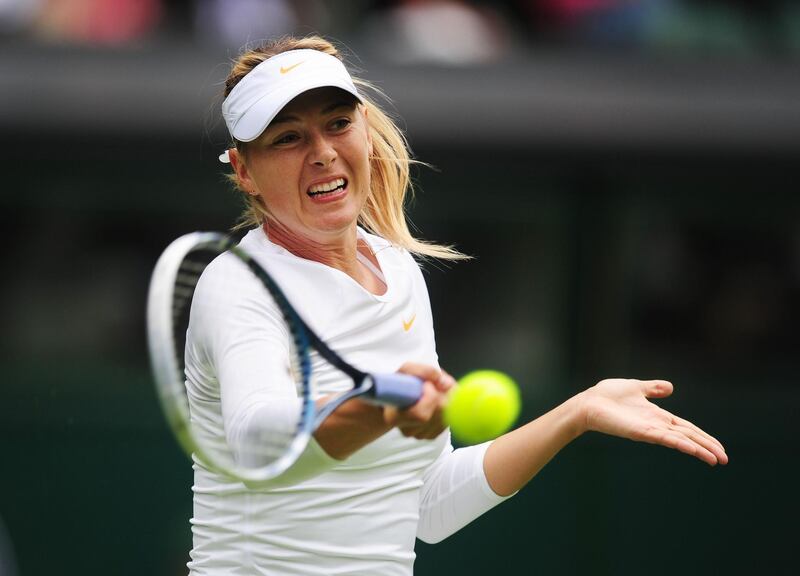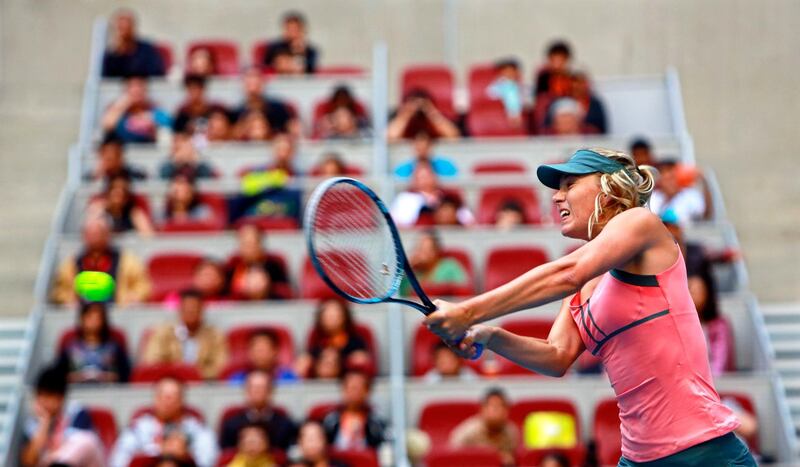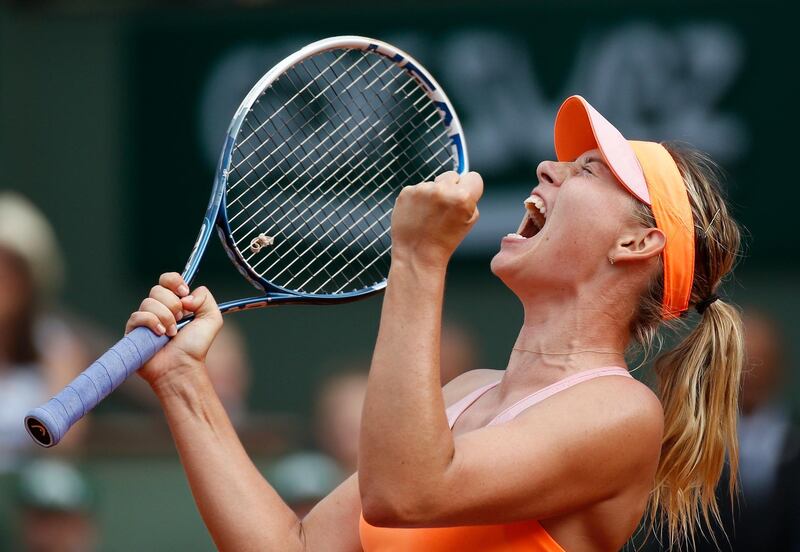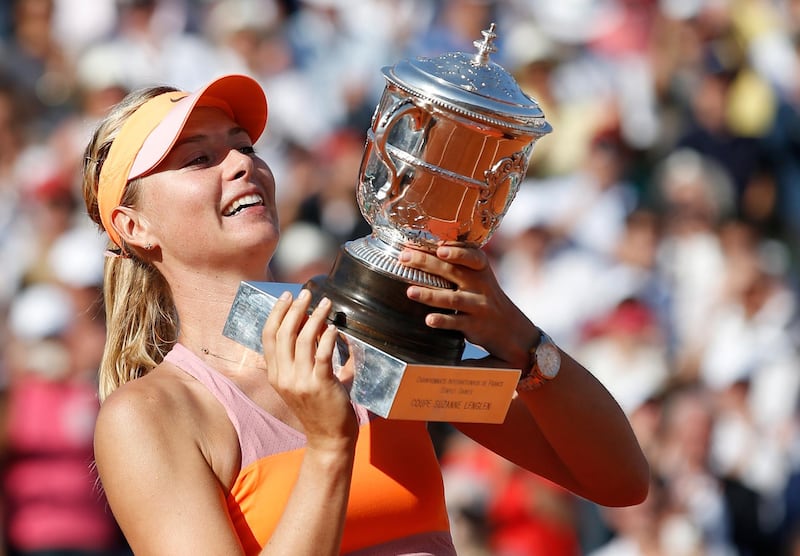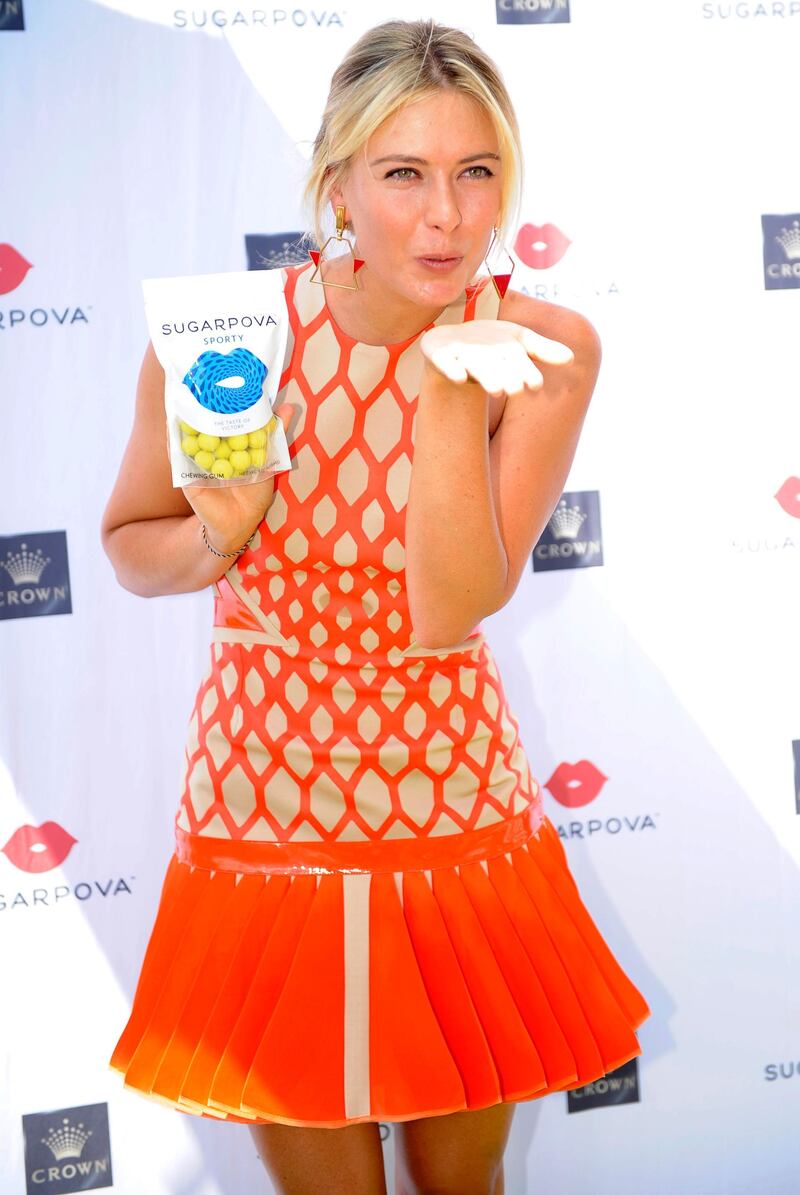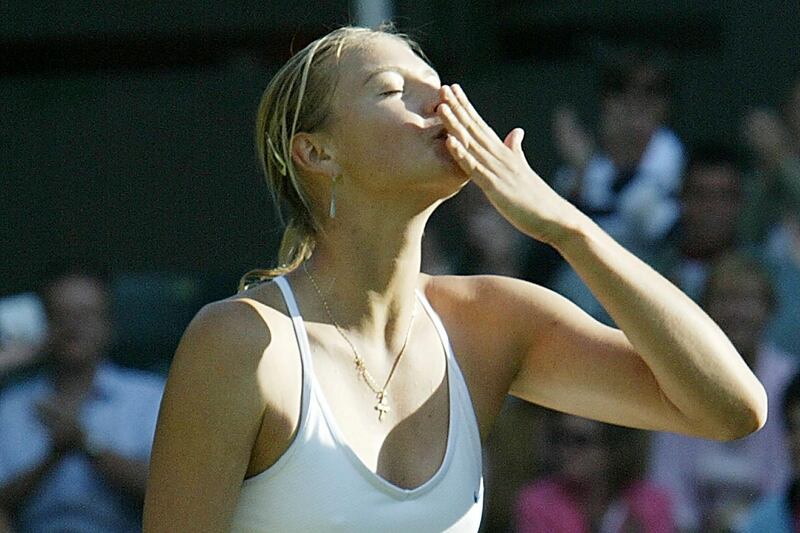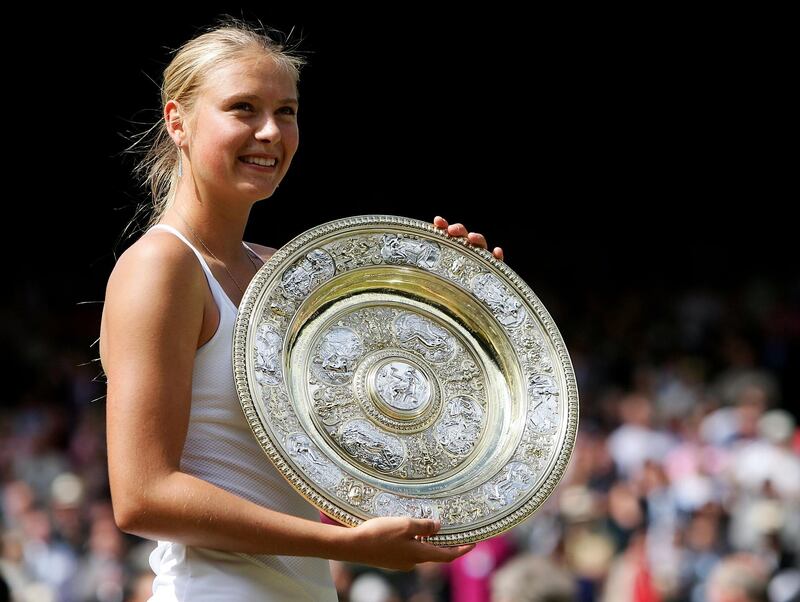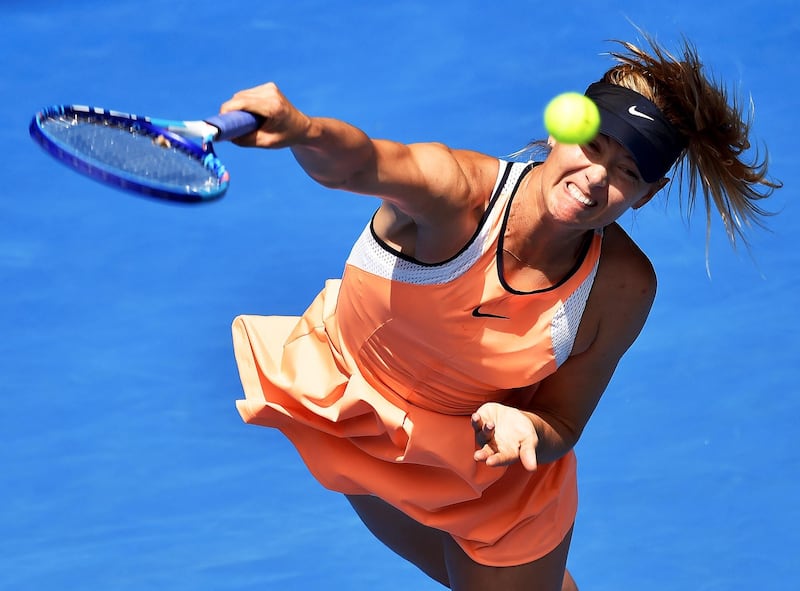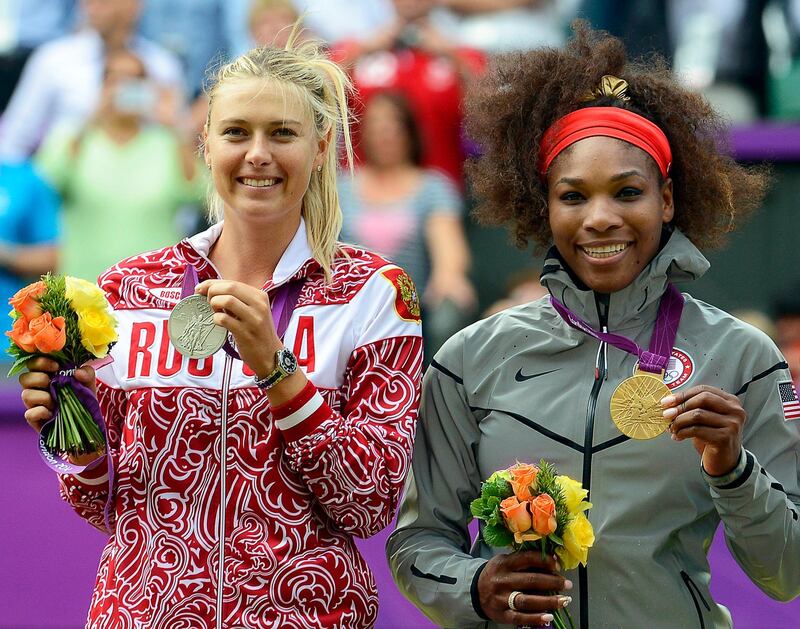One of the most successful, impactful, illustrious, controversial, complicated, and polarising careers in sports came to a conclusion on Wednesday. Maria Sharapova, in an eloquently written essay for Vanity Fair, announced she was "saying goodbye" to tennis.
The timing of the announcement was hardly a surprise. Sharapova has long struggled with injury, particularly with her shoulder – “my tendons have frayed like a string” – and those fitness problems had become insurmountable in recent years.
The Russian hangs up her racket after being limited to just two matches this year, following a 2019 season which comprised of seven tournaments and ended prematurely after the US Open in August. “My body had become a distraction,” Sharapova wrote.
The origins of her story are quite remarkable. At the age of six, Sharapova and her father, Yuri, left Russia for the United States with, as the story goes, $700 [Dh2,500] to their names.
A little more than a decade later in 2004, a 17-year-old Sharapova was crowned Wimbledon champion after stunning Serena Williams in the final.
It was an accomplishment that propelled her to superstardom and as her on-court success increased, so did her celebrity as major sponsors lined up to be associated with the glamorous champion of women’s tennis.
Sharapova retired with $39 million in total prize money; it is estimated she earned 10-times that in endorsements and was named the world’s richest female athlete for 11 successive years, despite spending much of her career firmly in the shadow of Williams.
Yes, based purely on athletic achievement, Sharapova has enjoyed a Hall of Fame career. Five major titles and only the 10th – and most recent – female player to complete the career Grand Slam, Sharapova won a total of 36 singles titles, which places her 15th on the all-time list.
Russia’s first female world No 1 – a position she held for an accumulative 21 weeks – and the country’s flag-bearer for the 2012 London Olympic Games, where she won a silver medal, Sharapova was also one of her nation’s greatest athletes.
However, there is no hiding from the fact that her legacy will be forever tarnished by the failed drug test in 2016 when Sharapova tested positive for meldonium, a drug which had recently been added to the banned substances list.
A two-year ban was reduced to 15 months on appeal after the Court of Arbitration for Sport deemed Sharapova was not an “intentional doper”.
Regardless of intent, the scandal caused plenty of people within tennis – including fellow professionals – to question Sharapova’s honesty and integrity, particularly after her perceived lack of humility over the whole ordeal.
What few will question, though, is Sharapova’s dedication and mental toughness to becoming the best tennis player she could possibly be.
She was never the most talented player, but she was one of the toughest and possessed an obsessive desire to win. It was an obsession that won her few friends on the tour and the silence from many of her former colleagues since she announced her retirement has been deafening.
Yet, those same former colleagues owe a debt of gratitude to Sharapova, who played an integral role through her transcendent status in elevating the women’s game to the point where equal prize money is becoming increasingly common.
Sharapova’s is a complicated legacy of grit and glamour; of rags to riches; and of success and scandal, and she undeniably made an indelible impact on tennis.
